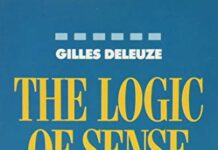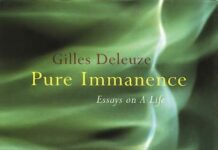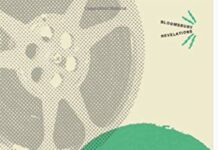
Ebook Info
- Published: 1985
- Number of pages: 104 pages
- Format: PDF
- File Size: 2.07 MB
- Authors: Gilles Deleuze
Description
Gilles Deleuze (1925-1995) was Professor of Philosophy at the University of Paris VII. He is a key figure in poststructuralism and one of the most influential philosophers of the twentieth century. Kant’s Critical Philosophy is an outstanding example of Deleuze’s work and one of the best short introductions to Kant available. The book lays emphasis on Kant’s own view of philosophy. Where most discussions of Kant’s work concentrate on the Critique of Pure Reason and the moral philosophy, Deleuze gives a broad overview of the whole of the Critical Philosophy. The book makes an important and welcome contribution to the field of Kant studies.
User’s Reviews
Reviews from Amazon users which were colected at the time this book was published on the website:
⭐Concise summation of the three Critiques. A jewel
⭐Deleuze has long apprehended the *Critique of Judgement* as that rarest of philosophical achievements, a work of hoary old age whose radical and “deeply romantic”(xi) precepts are somberly misunderstood by students, most of whom pass it off as a clunky, fossilized curio of old-school aesthetic theory. As argued in this text, however, Kant’s project is sensible (one might even say consummated) only in the light of this penultimate work, the keys to which are well worth questing for: “What is in question is how certain phenomena which come to define the Beautiful give an autonomous supplementary dimension to the inner sense of time, a power of free reflection to the imagination, an infinite conceptual power to the understanding…. It is a terrible struggle between imagination and reason, and also between understanding and the inner sense, a struggle whose episodes are the two forms of the Sublime, and then Genius. It is a tempest in the depths of a chasm opened up in the subject. The faculties confront one another, each stretched to its own limit, and find their accord in a fundamental discord: a discordant accord is the great discovery of the *Critique of Judgement*, the final Kantian reversal…the source of time”(xii-xiii).Radically, Deleuze follows De Quincey’s *The Last days of Emmanuel Kant* by casting the later Kant as a grizzly King Lear of sorts, exiled from his “reasonable” philosophical kingdom and stepping precariously to a mad song of Romantic apperception. Hamlet’s “time out of joint” becomes the unhinged temporality of movement subordinated and conditioned by time, or the Borgesian “labyrinth which is composed of a single straight line, and which is indivisible, incessant.” While Rimbaud’s “I is another” becomes the form under which the I affects the ego, or the mind affecting itself, an interiorized temporality that constantly divides us from ourselves, “a giddiness, an oscillation which constitutes time”(ix). Kafka’s “The Good is what the Law says” reminds us that there is nothing to “know” in the law, simply that it *is*, and that we only come across this “ism” through action and execution, by which we must deduce the Good. Finally, Rimbaud’s “disorder of all the senses” becomes that autopoetic civil war of the faculties pushing themselves to act and cooperate in unique and unprecedented ways, leading one faculty to an achievement or realization it would never have had on its own, pushing the known boundaries of genius and creativity, onward to mutation.This is a “brief” treatise whose length should not be underestimated. As always, Deleuze’s exegetical style is diamond-sharp, tracing an analytical razorline through the architectontic reversals of Kant’s ever-burgeoning spiritual maturity, from the brilliant technician and moral demiurge of the first two critiques, to the wild, discordant Kant of old age.For those uncomfortable with Deleuze’s controversial approach to Nietzsche and Spinoza, this volume is much more Kantian than Deleuzian. But its originalities are impossible to deny, its exegetical precision a godsend. Deleuze’s extraordinary personality is stamped on every page, while the unchained spirit of the later Kant shines provocatively through. This treatise should be special-ordered for all university courses on Kant’s philosophy. It is an outstanding 20th-century reaction to a now misappropriated philosophical visionary, the grandeur of whose final work is too often obscured by the first two Critiques, which are merely its prologue or conceptual training-ground.
⭐This is a slim volume, unusual because it operates at a very general level across all three of Kant’s Critiques instead of the more usual focus on a single Critique. Deleuze’s aim is architectonic: to show how the three Critiques fit together to form a coherent whole. This is a valuable undertaking since it’s very easy to get lost in the Kantian thickets, which are arguably the densest in all of Western philosophy.Deleuze organizes the three Critiques around the core notion of faculties and the objects over which they legislate. For example, understanding legislates in the faculty of knowledge, while reason operates over the faculty of desire; taken individually, the study of each makes up the content of the first two of Kant’s celebrated Critiques. Their respective functions are shown by Deleuze to culminate in the third Critique (i.e. *Critique of Pure Judgement*), wherein the notion of “ends”, both moral and cognitive, reach synthetic fulfillment. Hence, it is in the third Critique, instead of the first two, in which the capstone of Kant’s Copernican revolution is reached. Here in the arena of art and aesthetics, no faculty legislates, nor are generic objects present. Rather aesthetic judgement involves the faculties and imagination in a kind of free play aimed at some type of overall harmony. Rather than knowledge, which can only be phenomenal, culture represents humankind’s highest achievement and its measurement; and the highway into 19th century Romanticism opens.Kant is a giant of Western philosophy. This book aids in an understanding of his overall undertaking.
Keywords
Free Download Kant’s Critical Philosophy: The Doctrine of the Faculties in PDF format
Kant’s Critical Philosophy: The Doctrine of the Faculties PDF Free Download
Download Kant’s Critical Philosophy: The Doctrine of the Faculties 1985 PDF Free
Kant’s Critical Philosophy: The Doctrine of the Faculties 1985 PDF Free Download
Download Kant’s Critical Philosophy: The Doctrine of the Faculties PDF
Free Download Ebook Kant’s Critical Philosophy: The Doctrine of the Faculties





